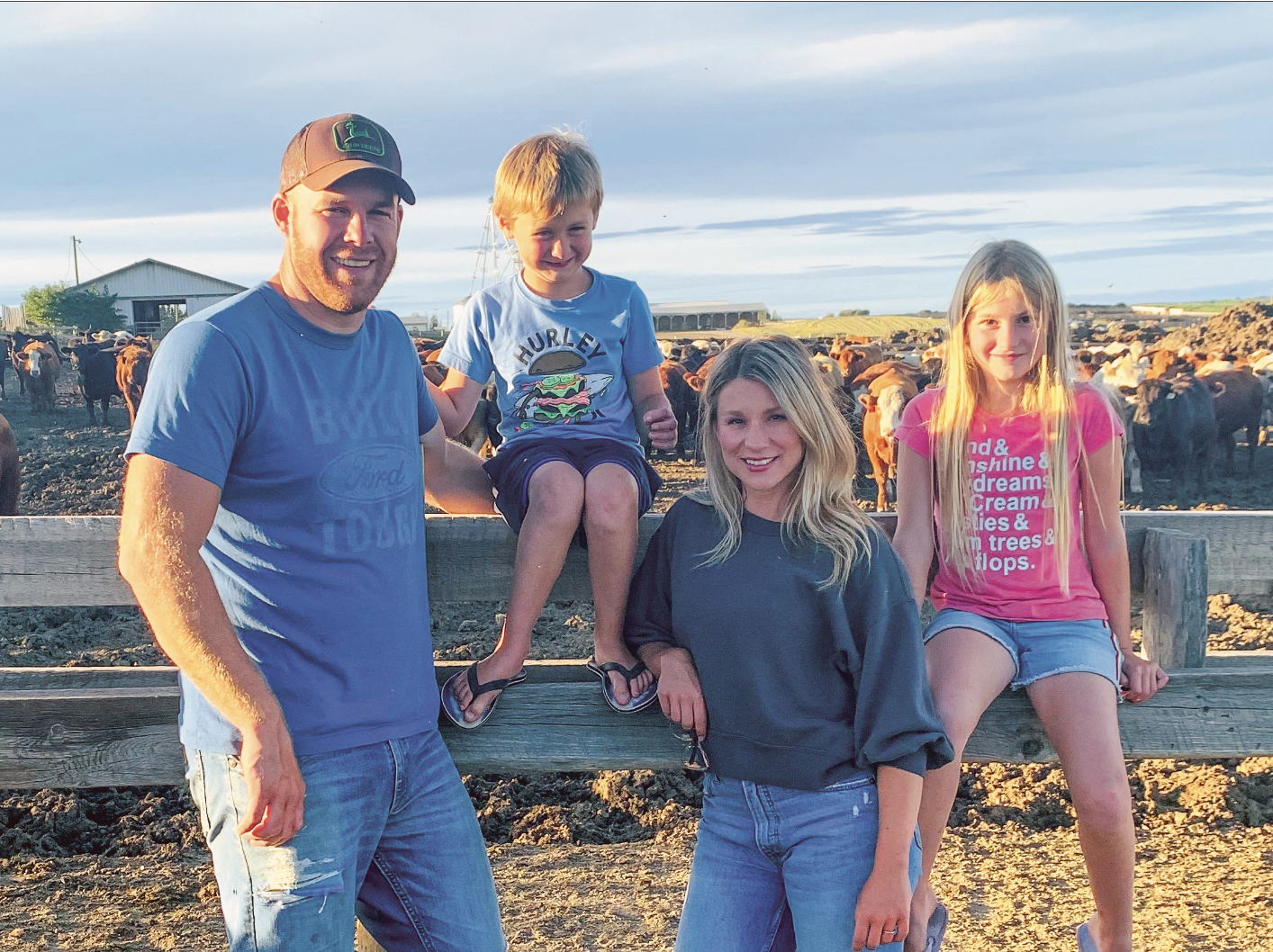
5 minute read
Conversations: Hunters, I’m Your Ally
► by Ariana Tourneur
There’s no camouflage in my closet. Numbness hasn’t overtaken my lower half from spending endless hours in a tree stand. And I’ve definitely never taken a settling breath, zeroed in on an animal, and squeezed the trigger.
To be honest, the lack of experience made me feel like I wasn’t doing enough.
As early as elementary, my classmates would dedicate after-school hours to their hunter education course and excitedly recount hunting expeditions with their families. Hailing from nonhunters, this world felt unfamiliar and unattainable—but back then, I was okay with that. My family’s cattle ranch and the responsibilities that came with it provided the outdoor fix I craved.
It wasn’t until later, when I landed a full-time gig with Alberta Conservation Association (ACA), that I started to prod at my lack of firsthand hunting experience. Surrounded by bonafide hunters, ethical and patient in their quests with a willingness to teach, I felt this would be it. My moment to embrace hunting. To learn, to spend time in the field, to finally make the big switch—from non-hunter to hunter.
My career encouraged me to accompany others on hunts, release pheasants, try an impressive myriad of mouthwatering wild game, open up our farmland to hunters, and become immersed in Alberta’s hunting culture and its captivating stories. Yet, the timing was never right. The nudges were aplenty, but they didn’t compound enough to push me over the edge. Instead, guilt intensified and lingered. I believed wholeheartedly in hunting and everything it stood for, but deep down, I knew I wasn't going to harvest an animal myself.


And now?
I don’t think I ever will.
With this newfound acceptance, my guilt disappeared in a poof. Everything shifted, and it was all because of a short conversation with a profound aftermath.
I was with friends and a few people I didn’t know well. The subject of deer hunting came up. Not everyone shared the same perspective, and someone said they couldn't wrap their mind around killing something you care about. Before I even realized it, the words were spilling out of my mouth. From my time with hunters, I knew some truths. I had to share them.
Hunters acknowledge the complexity of hunting. I said that while recognizing the potential for suffering, they find deep satisfaction in sourcing their own meat and the subsequent rituals of handling the animal with empathy and gratitude. They take full responsibility for their choice to hunt.
Still, hunters often put in hours and hours of commitment with no harvest. I told this person that the loudest hunters, showing off massive antlers and killing without apparent compassion, don’t represent the majority. In my experiences, hunters are the most ethical, responsible, and generous people I’ve ever met.
The last thing I mentioned was that hunters have incomparable connections to nature. They were the first to realize our natural resources aren’t limitless and that we must take action for future generations. It was a real turning point for conservation, and hunters are the reason why a lot of wildlife hunted today are thriving.
I don’t think this individual will take up hunting any day soon, but they did say, “I never thought of it that way.”
Admittedly, this one conversation didn’t spark a revolution. Active participation in hunting will always have the most impact, but we should keep in mind that representation in all circles of society can carry just as much weight. This representation can come from a non-hunter. Maybe, in some circles, it's even better if the person is a non-hunter.
I consider myself lucky—many non-hunters have never been exposed to positive hunting role models like I have. Without positive influence, and in an era of social media, it’s easy to believe misconceptions. We know hunters should take responsibility for shaping perceptions, but why can’t non-hunters too? Together, our voices are louder. Together, we have a better shot at changing the way hunting is perceived, turning a negative conversation driven by anti-hunters into a positive one led by us.
In a time when fewer people understand or support hunting, advocating for this way of life is vital. Who knows who we might influence, or perhaps who might even take up hunting because of a bridge we extended. By speaking up about hunting and sharing positive experiences, we can inspire others to see hunting in a new light. Maybe, in my own way, I am a hunter. I just don't carry a gun or bow like you might; I carry words.
Though I may never grasp the nuanced emotions tied to making a kill, I deeply value hearing hunters' stories and seeing their dedication firsthand. I welcome trusted hunters onto my land to act as diligent stewards, gratefully enjoy the benefits of their efforts (elk steaks are my favourite!), and in return, advocate for respectful hunting whenever I can. It's a small gesture, but when echoed by more people like me, contributes to greater acceptance and flourishing outdoor opportunities—for everyone.











